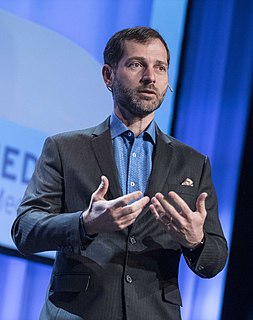A Quote by Ellen Ullman
I don't know where anyone ever got the idea that technology, in and of itself, was a savior. Like all human-created 'progress,' computers are problematic, giving and taking away.
Related Quotes
The idea of having more technology solving this idea of hyperactive lifestyle is not really the mainstream problem. I think the real innovation that’s going to be rewarded will be on things like, let’s convert our computers from being tools to being companions. Let’s convert our computers from being utilitarian to being enlightening. These are human needs.
































